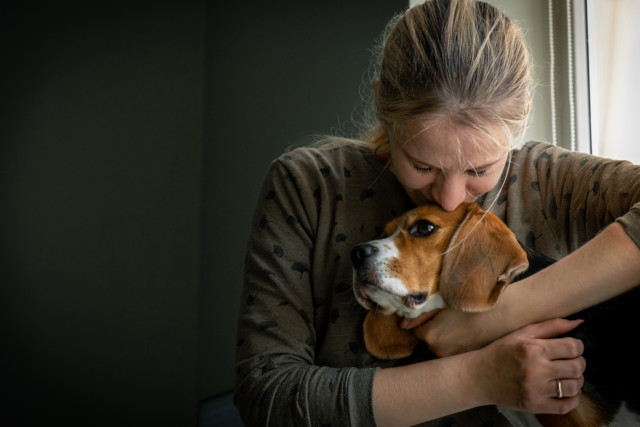HE is on a mission to help our pets . . . and is here to answer YOUR questions.
Sean, who is the head vet at tailored pet food firm tails.com, has helped with owners’ queries for ten years.
He says: “If your pet is acting funny or is under the weather, or you want to know about nutrition or exercise, just ask. I can help keep pets happy and healthy.”
Q) MY ginger tomcat Mr Tiddles is obsessed with the shower. He yowls until I let it run for him and he gets in and plays with the water. He’s obsessed with dripping taps as well.
I thought cats hated water — should I be worried and is it OK to encourage his weird obsession?
Ernest Hopkins, Stoke
Sean says: As I always say, every pet is different, and that includes cats and their relationship with water.
There is no need to worry if it’s just a playful behaviour that your cat has always engaged in.
The concern would be with a cat, especially an older one, who has developed a sudden interest in water because they are now constantly thirsty. That can indicate a number of health problems including diabetes and kidney disease.
But it sounds like Mr Tids is just your special little water baby weirdo.
Q)OUR beagle cross Ozzy keeps barking to be let out between midnight and 3am. We rescued him 18 months ago and he’s being doing this for the last year.
We have taken him to the vets to check if he’s got diabetes, but he hasn’t. He needs a lot of fussing. Have you got any tips to stop this, as it is very draining?
Ruth Schreder, Leicester
Sean says: You don’t say how old Ozzy is, but if he’s over ten, you may be seeing early signs of canine cognitive dysfuntion (CCD). It’s similar to going senile in elderly people.
Being confused, appearing to get lost or staring into space are other signs. Toileting accidents or changes to toileting routine can also happen.
Of course it may be that he’s just got into a new nightly toilet routine. But rewarding unwanted behaviour is a sure-fire way to keep it happening.
You don’t elaborate on his neediness, but think about how your responses may be making it worse.
Q)PLEASE help. My 14-month-old cat Pepsi is so aggressive. She’s been neutured. She hisses and attacks for the oddest reasons — if I pick her up to take her out, or if I am stroking her.
She latches on to my arms. She is nice one minute and angry in a second.
JENNY FINCH, Liverpool
Sean says: She sounds pretty conflicted about human interaction. Is anyone in the household rough playing with her, or did you when she was a kitten?
This can cause adult aggressive play in cats, especially when she gets excited. It also sounds like there may be some conflict over “putting her out”. Is this a punishment for when she misbehaves? Are you frequently angry when you go to put her out?
That might make her go into attack mode when you want to pick her up or put her out in future. A pet behaviourist should be able to spot just what is triggering this.
Q)I HAVE a five-year-old male cavachon called Bow who has developed pink colour on his skin and hair, mostly between his back legs on the inside.
It doesn’t seem to bother him, but how can I get rid of it please?
Allyson Evans, West Glamorgan
Sean says: Is he licking these areas? In a white dog, saliva will stain the coat and underlying skin pinkish or even red, depending on how long it’s been going on. There are shampoos for removing saliva staining.
But I could be wrong, maybe there’s an underlying skin condition. Is Bow scratching more, like he’s itchy? Without an exam I can’t tell, so a vet visit is a good idea.









